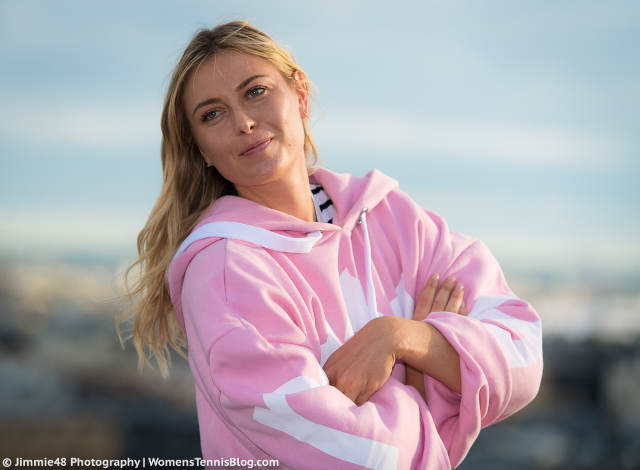In the 20th anniversary year of Maria Sharapova‘s first Grand Slam victory at Wimbledon in 2004, her agent, Max Eisenbud, recently discussed on Andy Roddick’s podcast how the tennis icon masterfully balanced her sports career with lucrative sponsorship deals.

We’ve witnessed many WTA players veer off course, prioritizing modeling and off-court events over their on-court performance, lured by lucrative sponsorship deals. Sharapova stands out as a rare example of striking the perfect balance between tennis and commercial endeavors. Despite her success in business, she always maintained a focus on her tennis career, leaving the sport with remarkable achievements and groundbreaking business partnerships. How did she manage this exceptional balance?
Eisenbud, who first met Sharapova when she was just 11 years old in Bradenton, Florida, revealed that tennis was always the top priority for the Russian WTA player and her family. To ensure this focus remained intact, Eisenbud meticulously identified all the weeks when Sharapova was busy playing in tournaments, preparing for events, or recovering after tournaments. During these periods, which were crucial for her performance, Sharapova’s schedule was strictly off-limits for photoshoots and other sponsor-related events. This strategic approach allowed her to maintain her competitive edge while also maximizing her commercial opportunities.
“The key is how do you maximize your earnings but still win,” Eisenbud explained. At the time, the only person dealing with a similar situation was Tiger Woods, so Eisenbud reached out to his colleague Mark Steinberg and asked him how he balanced the demands of commercial interests with athletic success.
This strategy led Eisenbud to the conclusion that Sharapova had only 16 days a year available for photoshoots. His task was then to maximize earnings within these limited days for sponsors.
“She could’ve made 20 million dollars more if we added four or five more days,” Eisenbud revealed. This shocking figure highlights how Sharapova’s unwavering focus on her tennis career enabled her to continue winning despite a multitude of lucrative sponsorship deals.
Eisenbud also praised Sharapova’s father, Yuri Sharapov, as a mastermind behind his daughter’s career. Being smart and very savvy in business, Yuri played a pivotal role in helping Maria rise to the top of the world and selflessly stepped away when his involvement was no longer needed. After Maria won her third Grand Slam at the 2008 Australian Open, Yuri made a toast during the celebration, saying, “Baby, we won three Grand Slams by the age of 20, and I’m done.” From that day on, he never attended another tournament. He recognized that Maria was old enough to manage on her own and that his presence was beginning to potentially negatively affect their relationship. Yuri prioritized his relationship with Maria above all else, which many tennis parents fail to do.




